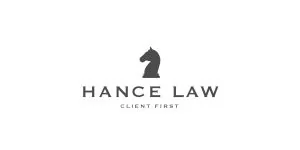INCORPORATION
Companies incorporated in Luxembourg have to register their registered office and a business address in the territory of Luxembourg.
Incorporation of a company requires various steps and documents, from choosing a type, a name and an address of the company, defining an object of the company, appointing directors and/or managers to preparing incorporation documents (including Articles of Association) and opening of a bank account. Incorporation documents have to be drafted in French or in German. A shareholder has to determine the amount of share capital and types of shares to be issued.
In most cases the founding members do not have to be present in Luxembourg to incorporate a company (use of a Power of Attorney).
DOMICILIATION
Companies that perform a business activity for which a business permit is not required (mainly holding activities) may make use of domiciliation services.
The Law of 31 May 1999 outlines more detailed rules for a domiciliation of companies. Domiciliation includes setting up a third party office (Servicing Office) through which company's activity shall be carried out pursuant to its bylaws and having this third party provide services linked to this activity. Third parties that are allowed to provide domiciliation services include attorneys, auditors and accountants, who perform their duties after having performed a "Know-your-customer – KYC" procedure. The identity of actual owners of the company and its managers has to be disclosed to the service provider. The company and its service provider shall sign a written domiciliation agreement.
Attorneys, auditors and/or accountants can also provide services of independent company directors.
LEGAL BASIS
The main law governing incorporation and operation of companies in Luxembourg is the Commercial Companies Act of August 10, 1915 (as amended). Business activities of commercial companies are governed by the Law of 28 December 1988 and articles 1832 to 1873 of the Civil Code.
Domiciliation of companies is regulated by the Law of 31 May 1999 on domiciliation of companies and the Conseil de l'Ordre Regulation of 28 March 2001 on domiciliation.
LEGAL FORM OF COMPANIES
Luxembourg law recognises the following types of commercial companies:
- Société anonyme (S.A.) – similar to a Public Limited Company or an Aktiengesellschaft (AG) (also in a form of a single shareholder S.A.);
- Société à responsabilité limitée (S.àr.l.) – similar to a Private Limited Company or a Gesellschaft mit beschränkter Haftung (GmbH) (also in a form of a single shareholder S.à r.l.);
- Société en commandité par actions (SCA) – similar to Partnership Limited by Shares or Kommanditgesellschaft auf Aktien (KGaA);
- Société en nom collectif (S.e.n.c.) - General Partnership ;
- Société en commandité simple (SCS) - Limited Partnership ;
- Société co-operative (S.C.) - co-operative (a co-operative can also be incorporated as a public company);
- Société européenne (S.E.) a société anonyme incorporated in conformity with article 2 of the European Council Regulation (CE) no. 2157/2001 dated 8 October 2001 on the articles of incorporation for a European company.
A Partnership (transparent company) is considered to have a legal personality (it is a separate legal person) which is separate from the legal personality of its partners. It has rights and obligations under commercial and tax law. It has its own assets and the partners of partnerships have unlimited liability, over and above their initial stake in the company.
Opaque company (capital company) is considered to have a legal personality (it is a separate legal person) which is separate from the legal personality of its shareholders. It has rights and obligations under commercial and tax law. It has its own assets. The liability of shareholders of capital companies islimited to their contribution to the company.
ADMINISTRATION
Commercial company's operations are managed by management (in various forms) and monitored by general meetings of shareholders. Obligation to audit company's financial statements depends on size criteria. An audit is performed either by an internal auditor (commissaire aux comptes) or a statutory auditor (réviseur d'entreprises).
Attorneys, auditors and/or accountants can assist clients with various administrative duties of the company, including:
- managing the register of shareholders and/or bondholders;
- organising and convening meetings of boards of directors and shareholders;
- drafting of the minutes of meetings of boards of directors and shareholders;
- maintaining and archiving company's documents and administrative records.
When required by the client attorneys, auditors, accountants and/or other providers can provide a fully furnished office and/or offer assistance in staff hirings.
The content of this article is intended to provide a general guide to the subject matter. Specialist advice should be sought about your specific circumstances.

